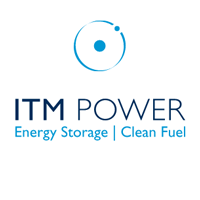Since the ITM Power Plc (LON:ITM) announcement on April 18th 2017, the pipeline of contracted projects, and projects in the final stages of contract negotiation, has increased by £2.8m to £27.2m, with £23m signed.
One area of the evolving hydrogen economy where ITM is becoming increasingly active, and is anticipating significant further growth, is the fuel cell electric bus (‘FCEB’) refueling market. £5.5m of the above pipeline finances ITM’s first FCEB refueling project build in Birmingham as part of a €125m European initiative to deliver 144 FCEBs and associated refueling infrastructure across 9 cities in Europe, of which Birmingham is one. Once built, ITM will own and operate the asset and the fueling revenue generated from it. ITM’s state-of-the-art, electrolysis-based, hydrogen fueling technology lends itself very well to this market, due to the ‘back-to-base’ logistics of the majority of bus fleet operations, coupled with the relatively low footprint of ITM’s hardware that produces hydrogen on site, compared to the larger footprints of competing bottled and stored hydrogen fueling solutions.
Applying some rules of thumb taken from today’s announcement and our note published on May 24th 2017: 1MW of ITM’s hardware can cover the fueling demand of c.10 buses, which can generate c. £1m of recurring fuel revenue per annum on a c.50% gross margin. Considering the suitability of ITM’s hardware to this market, the existing opportunity across Europe and the UK for hardware and fuel sales for ITM is already considerable. It is also set to grow, as inner city, diesel punitive, clean-air legislation increases in volume and tenacity, and FCEBs move down the cost curve as demand for alternative solutions grows. Taking a longer-term view, the upper limit of this market is set by the total number of buses on our inner city streets.
ITM Power Plc’s growing pipeline is evidence of the company executing its strategy of embedding and rolling-out its technology in target markets at this key early stage of market evolution, including scale renewables storage by power to gas (‘P2G’) and hydrogen fueling infrastructure for buses and cars. The pipeline also reflects growing interest from a number of other industrial mass markets including refining, steelmaking and chemicals.







































